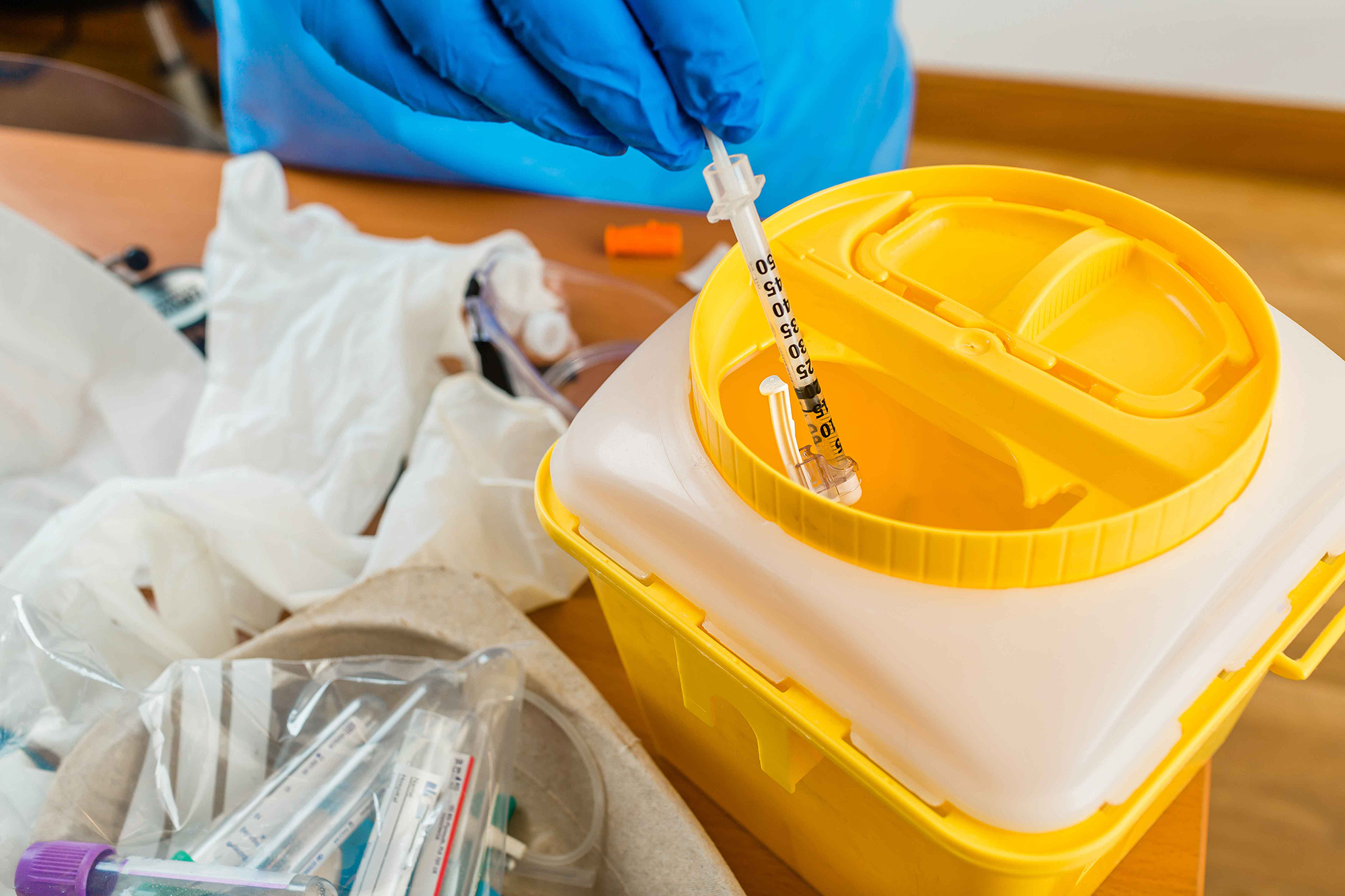Navigating Medical Waste Disposal: Crucial Providers for Health Care Facilities
Healthcare centers, whether big hospitals or tiny facilities, are left with the duty of handling, treating, and disposing of a large variety of clinical waste streams. Comprehending the important services that sustain medical waste disposal is not just an issue of compliance however likewise an essential component in guarding public health and wellness and ecological well-being.
Regulatory Conformity Support
For healthcare centers, making sure regulative compliance support is important to preserve correct handling and disposal of clinical waste. By partnering with regulatory compliance experts, health care facilities can remain updated on evolving laws, mitigate risks associated with inappropriate waste disposal, and eventually contribute to a more secure and a lot more sustainable setting for all.
Waste Segregation Support

Medical care facilities need to give clear standards and training to staff on just how to set apart waste successfully. This includes separating basic waste from harmful materials such as sharps, contagious waste, drugs, and chemical waste. Color-coded containers, labels, and signage are generally used to aid in waste segregation methods. Routine audits and monitoring of waste partition procedures are vital to recognize any type of concerns and make needed renovations.
Collection and Transport Services

Proper collection and transport services are essential components of the medical waste disposal process in healthcare centers. These solutions guarantee that harmful products are managed securely and in conformity with guidelines to shield both the atmosphere and public wellness. Medical care centers count on specialized waste monitoring companies to provide reliable collection and transportation solutions tailored to their needs.
Medical waste collection includes segregating various kinds of waste at the point of generation, utilizing color-coded bags or bins to differentiate between basic, harmful, pharmaceutical, and various other waste streams. Trained workers must execute this task to protect against contamination and make sure proper disposal. Once collected, the waste is delivered in devoted lorries outfitted to handle hazardous products safely. These cars follow strict security standards and follow designated paths to certified therapy facilities for disposal via methods such as landfilling, incineration, or sanitation.
Therapy and Disposal Solutions
In the why not try this out world of clinical waste disposal for healthcare centers, after the crucial phase his explanation of collection and transport solutions, the emphasis shifts towards carrying out efficient treatment and disposal remedies. Therapy services often include processes such as autoclaving, which makes use of heavy steam under pressure to decontaminate the waste.
Disposal options include the last step in the clinical waste monitoring process. Facilities may go with garbage dump disposal, where treated waste is carefully deposited in designated areas. Medical Waste Disposal Services. Medical care facilities can select to make use of waste-to-energy centers, which blaze waste to generate power. Recycling and source recovery are additionally getting traction as lasting disposal alternatives for sure kinds of medical waste materials.
Efficient therapy and disposal remedies are paramount in making sure compliance with guidelines and protecting public wellness and the setting. Medical care centers need to very carefully evaluate and pick appropriate methods that straighten with their waste management goals and sustainability efforts.
Team Training and Education And Learning

To properly take care of medical garbage disposal in health care facilities, detailed team training and education and learning play a crucial role in making certain adherence to governing demands and preserving a safe atmosphere. Correct training gears up staff with the understanding and skills needed to take care of different types of clinical waste, segregate them appropriately, and package them securely for disposal. By enlightening employees on the threats related to improper handling of clinical waste, facilities can minimize the chance of mishaps, contamination, and regulatory infractions.

Verdict
To conclude, healthcare centers count on vital clinical waste disposal solutions to make certain regulatory conformity, appropriate waste partition, secure redirected here collection and transportation, efficient therapy and disposal, in addition to team training and education. These services play an important duty in maintaining the wellness and safety of both healthcare workers and the public, highlighting the significance of correct monitoring of clinical waste in health care setups.
For healthcare facilities, guaranteeing governing conformity support is important to keep proper handling and disposal of clinical waste. Waste partition includes categorizing different kinds of clinical waste to guarantee appropriate handling, treatment, and disposal. This includes dividing basic waste from unsafe materials such as sharps, infectious waste, drugs, and chemical waste.Clinical waste collection entails setting apart different types of waste at the factor of generation, making use of color-coded bags or bins to differentiate in between general, dangerous, pharmaceutical, and other waste streams.In the realm of clinical waste disposal for health care facilities, after the critical stage of collection and transportation services, the focus changes towards applying reliable therapy and disposal remedies.